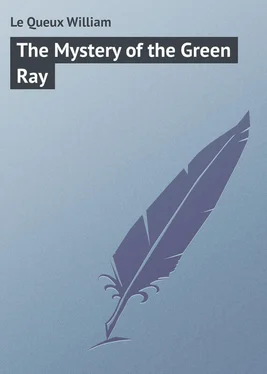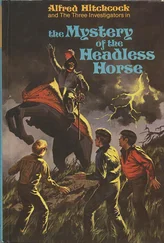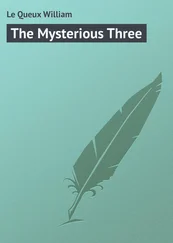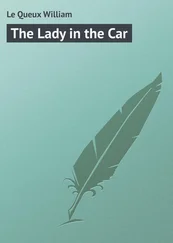William Le Queux - The Mystery of the Green Ray
Здесь есть возможность читать онлайн «William Le Queux - The Mystery of the Green Ray» — ознакомительный отрывок электронной книги совершенно бесплатно, а после прочтения отрывка купить полную версию. В некоторых случаях можно слушать аудио, скачать через торрент в формате fb2 и присутствует краткое содержание. Жанр: foreign_prose, foreign_language, на английском языке. Описание произведения, (предисловие) а так же отзывы посетителей доступны на портале библиотеки ЛибКат.
- Название:The Mystery of the Green Ray
- Автор:
- Жанр:
- Год:неизвестен
- ISBN:нет данных
- Рейтинг книги:3 / 5. Голосов: 1
-
Избранное:Добавить в избранное
- Отзывы:
-
Ваша оценка:
- 60
- 1
- 2
- 3
- 4
- 5
The Mystery of the Green Ray: краткое содержание, описание и аннотация
Предлагаем к чтению аннотацию, описание, краткое содержание или предисловие (зависит от того, что написал сам автор книги «The Mystery of the Green Ray»). Если вы не нашли необходимую информацию о книге — напишите в комментариях, мы постараемся отыскать её.
The Mystery of the Green Ray — читать онлайн ознакомительный отрывок
Ниже представлен текст книги, разбитый по страницам. Система сохранения места последней прочитанной страницы, позволяет с удобством читать онлайн бесплатно книгу «The Mystery of the Green Ray», без необходимости каждый раз заново искать на чём Вы остановились. Поставьте закладку, и сможете в любой момент перейти на страницу, на которой закончили чтение.
Интервал:
Закладка:
“Say, I beg your pardon,” he exclaimed apologetically. “My mistake.”
“Not at all,” I replied. “Where are we now?” For the train was still standing.
“Edinburgh,” he answered. “Just leaving. Sorry to disturb you.”
I again assured him that there was no harm done, and he turned and left me, the tassels of his Jaeger dressing-gown trailing after him. Then I fell asleep again, and woke up as we left Whistlefield. I had finished my wretched ablutions – for an early morning wash on a train is always a wretched business – as we reached Crianlarich. I was not long in claiming my breakfast; and when the passengers in the refreshment-room had finished their coffee – which seems to be the time when the train is due to leave, and not vice-versâ , as might be expected – the guard was standing on the platform, flag in hand, on the point of blowing his whistle. Suddenly the head of the American shot out of the window of his carriage – no other expression describes it.
“Say, conductor,” he exclaimed angrily, “where’s my breakfast?”
Surely Dennis had been right about the nationality.
“What name might it be, sir?” asked the guard.
“Hilderman – J. G. Hilderman. Ordered by telegraph.”
“I’ll see, sir,” said the guard, dashing into the refreshment-room. It did not seem to matter when the train started; but, after a further heated argument, in which the official refused to wait while a couple of eggs were being fried, Mr. Hilderman was supplied with a pot of coffee, some cold ham, and dried toast, and we recommenced our belated journey. I reached Fort William and changed on to the Mallaig train, as did Mr. Hilderman, on whom, after the breakfast episode, I had begun to look with an affectionate and admiring regard. The man who can keep a train waiting in Great Britain while the guard gets him his breakfast must be very human after all. Most of the way on the beautiful journey through Lochaber I leaned with my head out of the window, drinking in the gorgeous air and admiring the luxurious scenery of the mountain side. But, in view of the hilly nature of the track and the quality of the coal employed, it is always a dangerous adventure on the West Highland Railway, and presently I found myself with a big cinder in my eye. I was trying to remove the cause of my discomfort, and at the same time swearing softly, I am afraid, when Hilderman came up.
“I guess I’m just the man you’re looking for,” he said. “Show me.”
In less time than it takes to tell the offending cinder was removed, and I was amazed at the delicacy and certainty of his touch. I thanked him profusely, and indeed I was really grateful to him. Naturally enough, we fell into conversation – the easy, broad conversation of two men who have never seen each other before and expect never to see each other again, but are quite willing to be friends in the meantime.
“Terrible news, this,” he said presently, pulling a copy of the Glasgow Herald from his pocket. “I suppose you got it at Fort William?”
“No,” I said. “I didn’t leave the train. I wasn’t thinking of newspapers. What is it?”
“A state of war exists between Great Britain and Germany as from twelve o’clock last night.”
“Ah!” said I. “It has come, then.” And I was surprised that I had forgotten all about the war, which was actually the cause of my presence there. I noticed with some curiosity that Hilderman looked out of the window with a strangely tense air, his lips firmly pressed together, his eyes wide open and staring. He was certainly awake now. But in a moment he turned to me with a charming smile.
“You know, I’m an American,” he said. “But this hits me – hits me hard. There’s a calm and peaceful, friendly hospitality about this island of yours that I like – like a lot. My own country reminds me too much of my own struggles for existence. For nearly forty years I fought for breath in America, and, but that I like now and again to run over and have a look round, you can keep the place as far as I’m concerned. I’ve been about here now for a good many years – not just this part, for this is nearly new to me, but about the country – and I feel that this is my quarrel, and I should like to have a hand in it.”
“Perhaps America may join in yet,” I suggested.
“Not she,” he cried, with a laugh. “America! Not on your life. Why, she’s afraid of civil war. She don’t know which of her own citizens are her friends and which ain’t. She’s tied hand and foot. She can’t even turn round long enough to whip Mexico. Don’t you ever expect America to join in anything except family prayer, my boy. That’s safe. You know where you are, and it don’t matter if you don’t agree about the wording of a psalm. If an American was told off to shoot a German, he’d ten to one turn round and say: ‘Here, hold on a minute; that’s my uncle!’”
“You think all the Germans in the States prefer their fatherland to their adopted country, or are they most of them spies?”
“Spies?” said Hilderman, “I don’t believe in spies. It stands to reason there can’t be much spying done in any country. Over here, for instance, for every German policeman in this country – for that’s all a spy can be – there are about a thousand British policemen. What chance has the spy? You don’t seriously believe in them, do you?” he added, smiling, as he offered me a Corona cigar.
“I don’t know,” I said doubtfully. I didn’t want to argue with my good Samaritan. “There is no doubt a certain amount of spying done; but, of course, our policemen are hardly trained to cope with it. I daresay the whole business is very greatly exaggerated.”
“You bet it is, my boy,” he replied emphatically. “Going far?” he asked, suddenly changing the subject.
“North of Loch Hourn,” I answered.
“Oh!” said Hilderman, with renewed interest. “Glenelg?”
“I take the boat to Glenelg and then drive back,” I explained. I was in a mood to tell him just where I was going, and why, and all about myself; but I recollected, with an effort, that I was talking to a total stranger.
“Drive back?” he repeated after me, with a sudden return to his dreamy manner. Then, just as suddenly, he woke up again. “Where are we now?” he asked.
“Passing over Morar bridge,” I explained.
“Dear me – yes, of course!” he exclaimed, with a glance out of the window. “Well, I must pack up my wraps. Good-bye, Mr. Ewart; I’m so glad to have met you. Your country’s at war, and you look to me a very likely young man to do your best. Well, good-bye and good luck. I only wish I could join you.”
“I wish you could,” I replied heartily. “I shall certainly do my best. And many thanks for your kind assistance.”
And so we parted, and returned to our respective compartments to put our things together; for our journey – the rail part of it, at any rate – was nearly over. And it was not until long afterwards that I realised that he had called me by my name, and I had never told him what it was.
CHAPTER III.
MAINLY ABOUT MYRA
The train slowed down into Mallaig station. I thrilled with anticipation, for now I had only the journey on the boat, and Myra would be waiting for me at Glenelg. The train had hardly stopped when I seized my bag and jumped out on to the platform. The next instant I was nearly knocked back into the carriage again. A magnificent Great Dane had jumped at me with a deep bark of flattering welcome, and planted his paws on my shoulders.
“Sholto, my dear old man!” I cried in excitement, dropping my bag and looking round expectantly. It was Myra’s dog, and there, sure enough, was a beautiful vision of brown eyes and brown-gold hair, in a heather-coloured Burberry costume, running down the platform to meet me.
Читать дальшеИнтервал:
Закладка:
Похожие книги на «The Mystery of the Green Ray»
Представляем Вашему вниманию похожие книги на «The Mystery of the Green Ray» списком для выбора. Мы отобрали схожую по названию и смыслу литературу в надежде предоставить читателям больше вариантов отыскать новые, интересные, ещё непрочитанные произведения.
Обсуждение, отзывы о книге «The Mystery of the Green Ray» и просто собственные мнения читателей. Оставьте ваши комментарии, напишите, что Вы думаете о произведении, его смысле или главных героях. Укажите что конкретно понравилось, а что нет, и почему Вы так считаете.












